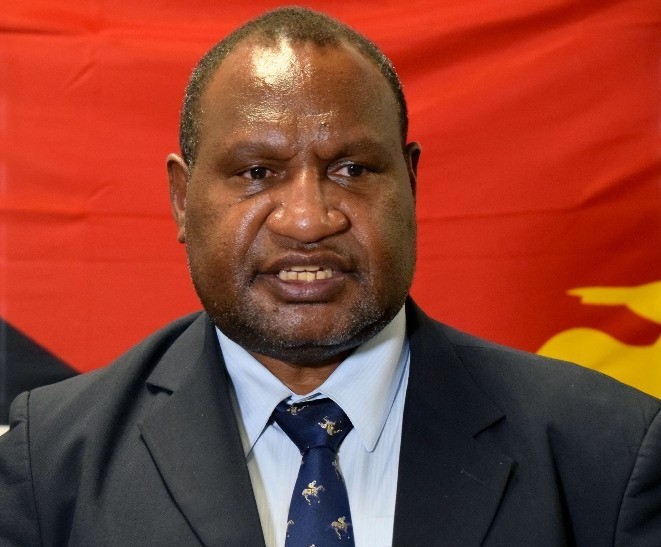Prime Minister James Marape came out at the First Joint Consultation Meeting yesterday stating that his government continues to be committed to the Bougainville peace process.
Speaking at the opening of the First Joint Consultation Meeting with Bougainville Moderator Sir Jerry Mateparae, Bougainville President Ismael Toroama, United Nations representatives, international stakeholders, and other distinguished leaders, Prime Minister Marape acknowledged the historical journey that has led to the current stage of the peace process.
Emphasizing the significance of the 2001 Bougainville Peace Agreement (BPA) and the necessity for continued dialogue between Papua New Guinea and Bougainville, Marape highlighted the necessity for continued dialogue between Papua New Guinea and Bougainville.
“This process was born out of the sacrifices of many, and it is our duty to ensure that the intentions of the peace agreement remain the foundation for our discussions,” said Prime Minister Marape.
“August 30 this year will mark 24 years since the signing of the agreement, and for 24 years, peace has been maintained without the firing of a single bullet. This in itself is an achievement that we must continue to build upon.”
Honouring the Bougainville Peace Agreement and Constitutional Process.
The Prime Minister reaffirmed that the 2001 Bougainville Peace Agreement is now enshrined in Part XIV of the PNG Constitution, providing a legal framework for dialogue and post-referendum consultations. He recognized the dedication of those who negotiated the agreement, stating that their work continues to shape the ongoing discussions.
“I was not there in 2001 when the agreement was signed, but as Prime Minister, it is my duty to study the past records and ensure that we honour the spirit and intention of the peace agreement,” he said.
The Prime Minister acknowledged the results of the 2019 Bougainville Referendum, in which 97.7% of voters chose independence, and reaffirmed that Parliament will ultimately deliberate and decide on the matter.
“Let me make this absolutely clear – my government allowed the referendum to take place, and we stand by our commitment to the process,” Prime Minister Marape stated. “However, it is now a constitutional matter that requires Parliament’s deliberation and decision-making.”
He highlighted that Section 342 of the PNG Constitution explicitly calls for post-referendum consultations, ensuring that both parties engage in structured dialogue before a final decision is made.
“The wisdom of the 2001 peace agreement is that it does not impose a strict timeline for resolution, but it does outline the importance of consultation and agreement,” he explained.
Economic Independence Must Precede Political Independence.
Prime Minister Marape urged Bougainville’s leadership to consider the importance of economic independence alongside political aspirations. He pointed out that 95% of Bougainville’s budget is currently reliant on external support, including funding from the PNG Government and international donors.
“Economic independence must precede political independence. The long-term sustainability of Bougainville must be factored into these discussions,” he added. “Today, as we speak, Bougainville generates only 5% of its own budget. This is a serious conversation that we must address as part of the broader negotiations.”
He acknowledged Bougainville’s resource potential but stressed that economic structures must be strengthened before full political independence can be realized.
“My duty as Prime Minister is not only to Bougainville but to the whole of Papua New Guinea. We must ensure that any decision we take is in the best interest of all parties,” he emphasized.
Addressing the Risks of Regional Fragmentation.
The Prime Minister also highlighted the broader national implications of Bougainville’s push for independence, warning that other regions of PNG may also seek similar autonomy if the issue is not managed carefully.
“Papua New Guinea is the most-diverse nation on earth. We have over 800 languages, 20 provinces, one National Capital District and Autonomous Bougainville Government. If we do not manage this process responsibly, we risk opening the door to similar movements in other parts of the country,” he cautioned.
He stressed that PNG must preserve national unity while respecting Bougainville’s aspirations, urging diplomatic partners and the United Nations to continue supporting a structured, peaceful transition.
Commitment to Continued Dialogue.
Prime Minister Marape reassured all stakeholders that the PNG Government remains fully committed to dialogue and consultation, as stipulated in the Bougainville Peace Agreement.
“We have held multiple rounds of consultations, and we will continue these discussions in good faith. There is no rush, as the Constitution does not impose a deadline. Our goal must be to reach a decision that ensures peace, stability, and prosperity for both Bougainville and Papua New Guinea,” he said.
The PNG Government and Bougainville leadership are expected to continue consultations in the coming months, with further discussions on the political and economic future of Bougainville.

